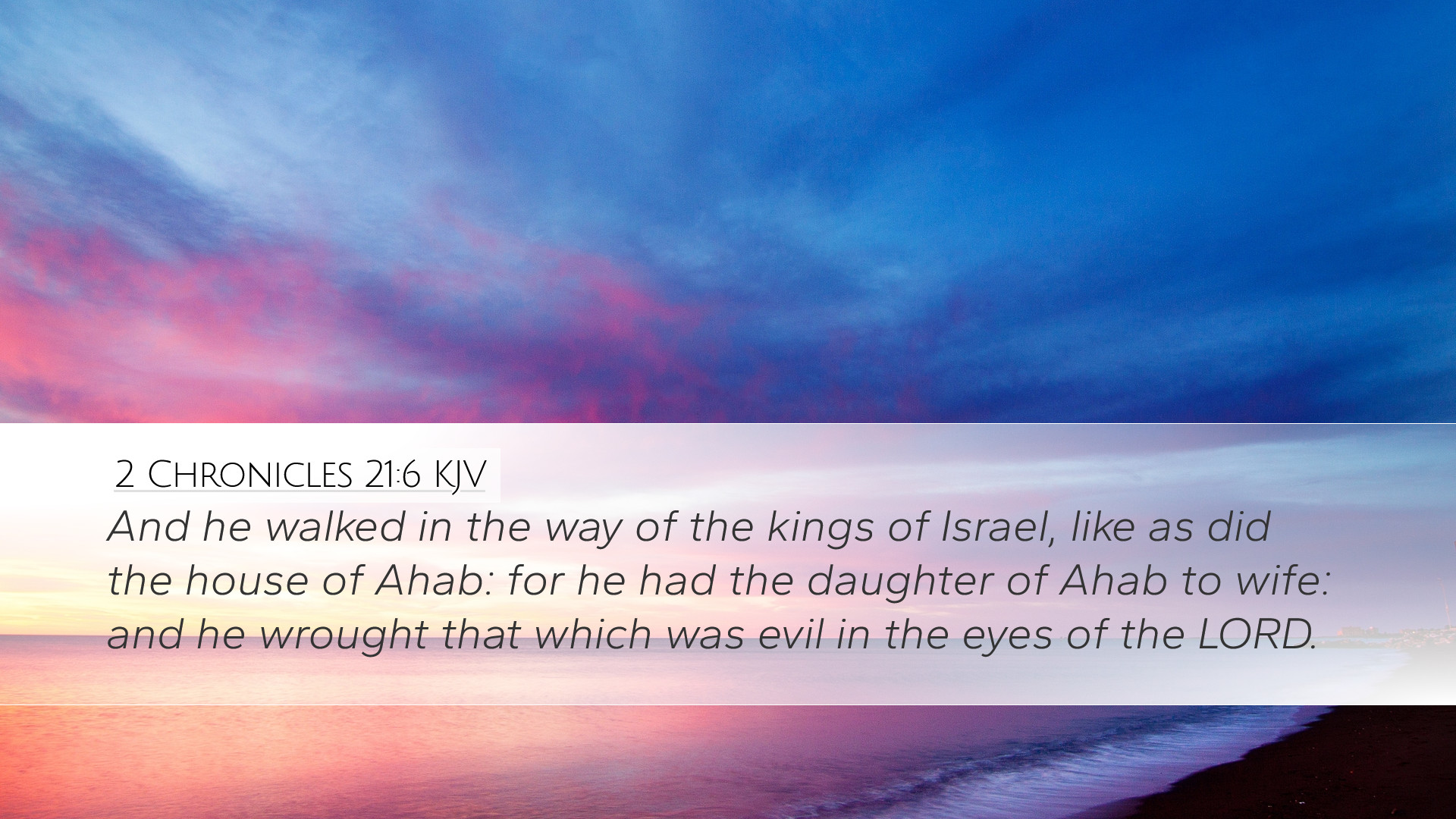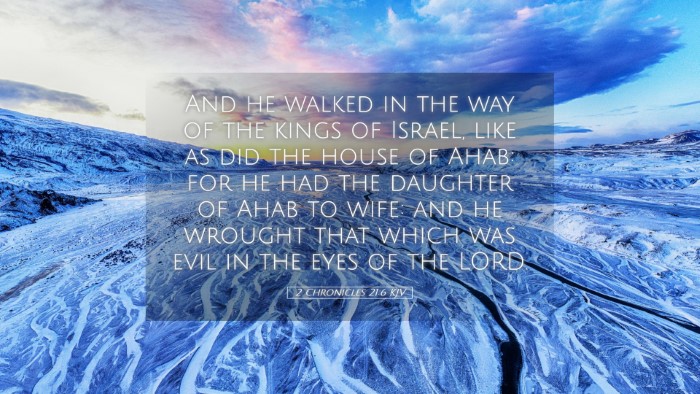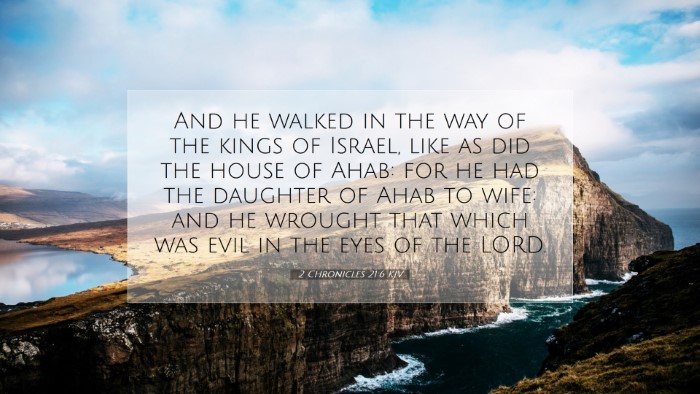Commentary on 2 Chronicles 21:6
The verse in question, 2 Chronicles 21:6, states:
"And he walked in the way of the kings of Israel, like as did the house of Ahab: for he had the daughter of Ahab to wife: and he wrought that which was evil in the eyes of the Lord."
Overview
This verse captures a pivotal moment in the history of Judah, highlighting the reign of King Jehoram, son of Jehoshaphat. The passage contrasts the righteous legacy of his father with Jehoram's progressive fall into wickedness, heavily influenced by his marriage to Athaliah, Ahab's daughter. Public domain commentaries, including those of Matthew Henry, Albert Barnes, and Adam Clarke, provide valuable insights into the implications of Jehoram's actions and the theological ramifications for the people of Judah.
Influence of Ahab's House
Jehoram's marriage to the daughter of Ahab signifies a political alliance, yet it also illustrates the spiritual compromises made at that time. Matthew Henry notes that:
-
The path of evil: Jehoram followed the sinful practices of Israel's kings, which eventually led Judah away from the worship of Yahweh.
-
Wicked counsel: His wife's influence brought about significant corruption, reflecting the dangers of alliances with ungodly influences.
Character Assessment of Jehoram
Albert Barnes comments on the nature of Jehoram's rule, indicating that:
-
Comparison to Ahab: Jehoram's actions are likened to those of Ahab, who was notorious for his idolatry and opposition to divine principles.
-
Leading with evil: Barnes articulates that Jehoram did not merely commit sins, but actively "wrought that which was evil," signifying a deliberate turning away from God.
Spiritual Implications
From a theological perspective, Adam Clarke elaborates on the broader implications of Jehoram's choices.
-
Consequences of leadership: Clarke emphasizes how the heart and character of a leader significantly impact the nation. Jehoram’s evil leadership sowed discord and led to spiritual decay among the people.
-
Judgment of God: The verse serves as a reminder of God's displeasure with those in authority who lead His people astray, showcasing how divine judgment is often a response to rebellious leadership.
Lessons for Today
The narrative of Jehoram presents crucial lessons for contemporary leaders in faith and governance.
-
Importance of godly alliances: Engaging in partnerships that compromise scriptural values can lead to detrimental outcomes, as exemplified by Jehoram's connection to Ahab’s lineage.
-
The nature of one's walk with God: The verse encapsulates the continual choice between righteousness and wickedness, urging current leaders and individuals to reflect on their spiritual walk.
Conclusion
The account of Jehoram in 2 Chronicles 21:6 serves as both a historical account and a poignant warning in the context of biblical theology. The insights gathered from the commentaries of Matthew Henry, Albert Barnes, and Adam Clarke illuminate the importance of choosing paths aligned with God's will and the dire consequences of turning away from His statutes. As modern-day believers, reflecting on Jehoram's life invites a necessary examination of personal integrity in leadership and the enduring call to uphold God's decree amidst a world filled with competing moral values.


